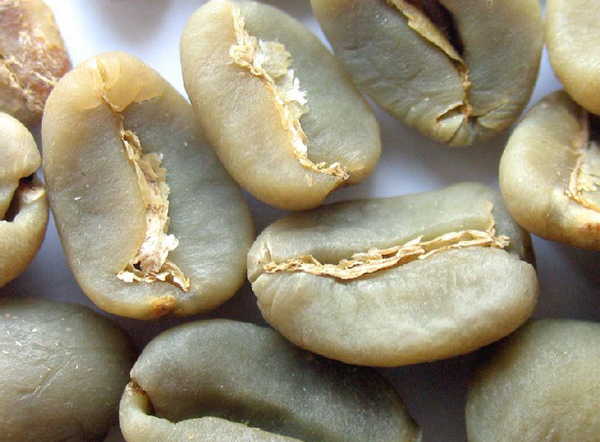The Prospect of Coffee Raw Bean Market
Outside the Wodessa cooperative warehouse on the outskirts of the western Ethiopian city of Kinma, farmers jostled as they watched their world-famous Arabica coffee beans put into sacks marked with a prominent bar code. These barcodes are designed to tell customers around the world where these coffee beans come from.
Fekadu Dugassa, manager of the Limu Innarea Coffee Cooperative, explained: "Coffee bean buyers are interested in who is growing coffee beans. Our aim is to sell producers of coffee beans. " This cooperative is located on the high-latitude plain on the outskirts of Jinma.
Despite drought in some parts of the country, Rain Water is abundant in coffee-producing areas in the southwestern highlands. Farmers hope the high-tech barcode system will give their coffee a price advantage in a global market that favours certification of origin.
"there are many coffee bean producing areas in our country, and traceability is not only to know where the coffee beans come from, but also to reflect who is involved in the whole process, that is, relevant information about the coffee bean growers. These data will help us transport coffee beans more easily and provide better quality coffee beans for buyers and consumers. " So says Ermias Eshetu, director of the Ethiopian Commodity Exchange (ECX).
In an effort to dominate the coffee market and improve the livelihoods of millions of farmers, ECX, USAid and the Sustainable Coffee Bean Project, a project initiated by many buyers including Nestl é, have jointly invested $4.2 million in the new barcode tracking system.
Since the system was launched last November, farmers have traded 1, 000 tons of traceable coffee beans worth $2.5 million via ECX. The plan was created through a partnership between ECX and USAid, through USAid's agro-business development market plan and future food security plan. The latter is a development plan to invest in local food agriculture and nutrition systems around the world.
Because the prices of traceable coffee beans are higher, the new system is expected to lead to higher prices of coffee from the country of origin in Egypt, which will enable farmers and their cooperatives to raise prices in ECX, which is good news for 5 million small farmers. Although coffee beans from places such as Sidamo, Kafa and Yegashifi are world-famous, they still have the poorest farmers in the world.

The coffee industry has helped more than 15 million people find jobs and accounted for about 31 per cent of the country's foreign exchange earnings.
According to Shimelis Arega, a spokesman for Ethiopia's Ministry of Trade, the country's exports are expected to grow by 45% this year and are expected to reach 260000 tons. Of these, about 60, 000 tonnes (or 1 million packets) will be traceable, accounting for about 25 per cent of total exports.
The barcode system, designed by IBM, records each bag of coffee beans sold through ECX to a data processing center. The centre deals with coffee bean-growing areas in the south, central and west.
Starbucks has been buying coffee beans from Ethiopia for nearly 40 years. Transparency is critical to Starbucks. As a result, we can clearly and effectively understand the key information about the farmers who make up the production chain, the amount of coffee sold to us and the origin of the coffee. " So says Arthur Karuletwa, head of tracking at Starbucks.
The Japanese government suspended imports of coffee beans from Ethiopia in 2008 after detection of illegal local pesticides in fresh coffee beans. Unable to track where the contaminated coffee beans came from, even as one of Ethiopia's largest importers, Japan imposed a two-year ban on all Ethiopian coffee beans.
Barcoding also helps to make farmers more professional and increase the value of their products before they enter the market. Cooperatives will begin to be equipped with modern cleaning stations and more professional training in coffee bean picking techniques.
The aging of coffee trees, low farming level and improper harvesting methods have long been the reasons for low yield and low quality. The data show that the country can produce 700kg of exportable coffee per hectare, while farmers in other countries can produce 1300 kg of exportable coffee per hectare.
Limu Innarea farmers can only harvest coffee beans from old plantations and have no drying technology or resources for modern cleaning stations.
"one of the biggest determinants of the quality of coffee beans is the control of the best timing for picking fresh fruit," Dugassa said. In the past, our farmers did not wait for the fresh fruit to be ripe enough to pick, which reduced the overall quality of our coffee beans. " He added, "now farmers already know how best to deal with coffee beans after picking."
Higher taxes on coffee bean exports will not only increase farmers' incomes, but also help governments better finance emergency response measures to deal with the worst drought in 50 years.
Mike Mamo, a coffee exporter based in Addis Ababa, is pleased that the Ethiopian government is finally facing up to the needs of buyers. For a long time, large companies have only bought traceable coffee beans with tropical rain forest certification or C.A.F.E certification, which has worried the prospects of the local coffee industry. In the absence of a reliable traceability system, one day big companies will stop buying Ethiopian coffee beans, which will cause huge losses.
For Karuletwa, this traceable coffee program can set a set of long-term and stable standards for the development of the coffee industry around the world.
Important Notice :
前街咖啡 FrontStreet Coffee has moved to new addredd:
FrontStreet Coffee Address: 315,Donghua East Road,GuangZhou
Tel:020 38364473
- Prev

Eight experts tell you to predict the general trend of coffee in the future.
Tobys Estate: more creative drinks. We predict that sugar-sweetened drinks will rise. Not long ago, boutique coffee advocated no sugar and milk. Our previous creative drinks Apple Betty and EspressoJulep are very popular with customers and people in the industry. We will launch a new creative Maple Sage Latte this fall. Come and have a taste! In terms of coffee production, garbage disposal is a kind of
- Next

Ways to reduce staff mobility in cafes
The mobility of people in the coffee industry is too great! Some restaurant owners often blame the low quality of domestic baristas and the poor domestic coffee environment so that their salaries are low. Salary is not the only reason that affects the flow of people! As a leader, you should know how to employ people. in today's world, the competition of enterprises is, in the final analysis, the competition of talents. Talents are the life of an enterprise, and famous enterprises abroad
Related
- How to make butter American/butter latte/butter Dirty coffee? Is hand-brewed coffee good with butter?
- Is Dirty the cold version of Australian White? What is the difference between dirty coffee/decent coffee and Australian white espresso?
- Relationship between brewing time and coffee extraction parameters How to make the brewing time fall to 2 minutes?
- Got entangled?! Lucky opens a new store, Mixue Ice City, and pursues it as a neighbor!
- How long is the shelf life of high-quality hand-brewed hanging ear coffee? Why is the taste period of hanging ear coffee ground into powder only one month?
- Why does hand-brewed espresso smell good but taste bitter? Is the flavor of high-quality hand-brewed coffee aroma or taste?
- Special treatment? COSTA's China business was evaluated separately!
- Match with Xi Tea?! Lucky will launch the new "Snow Cheese Grapes"
- What is the recommended proportion of water temperature and grinding time for hand-flushing Huakui coffee beans? What parameters should be used for cold extraction and cold brewing hand-brewed Huakui coffee?
- Share the most detailed golden formula for cold extract coffee making on the whole network! What proportion of ground is used to make cold coffee brewed for several hours?

